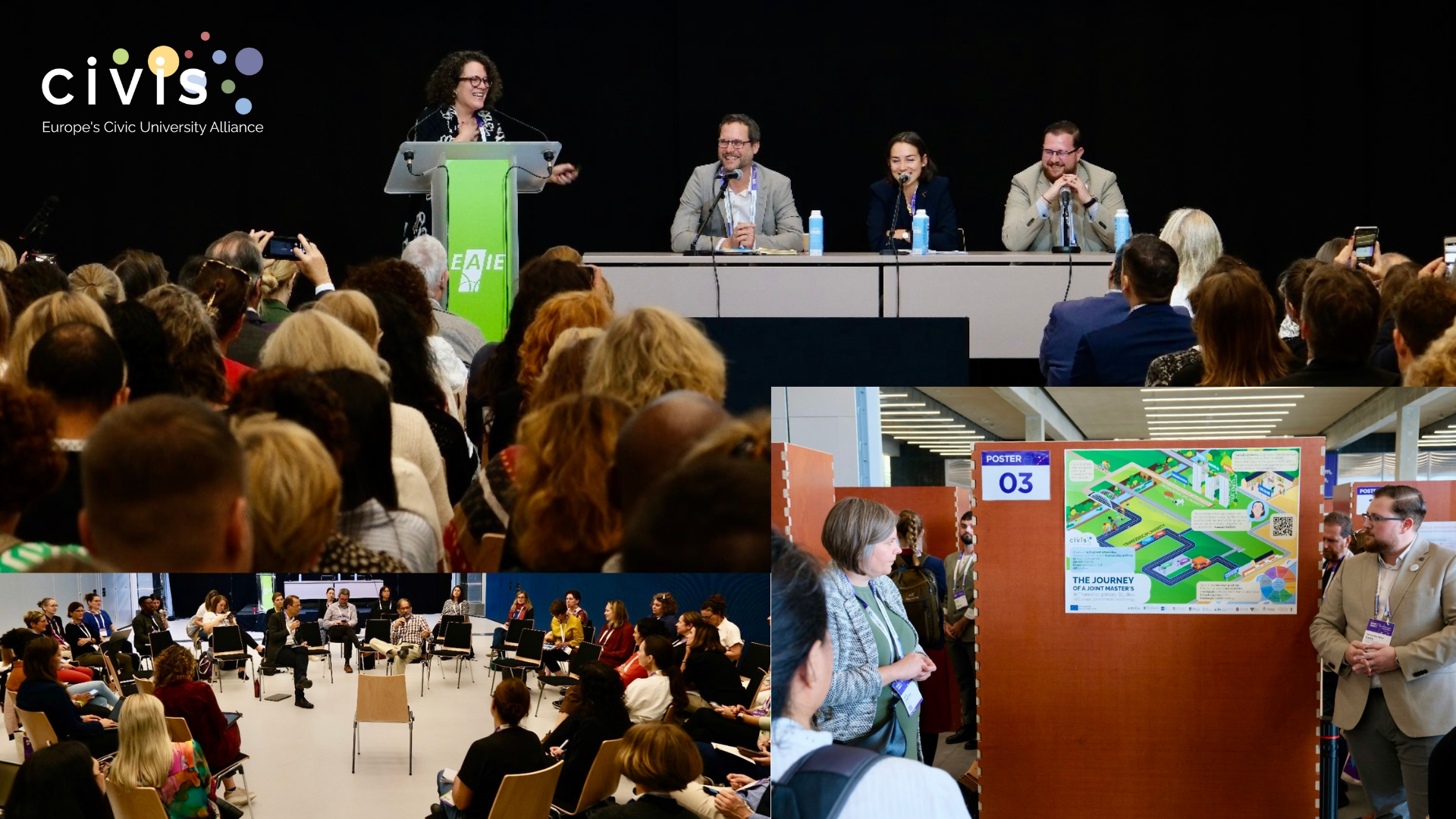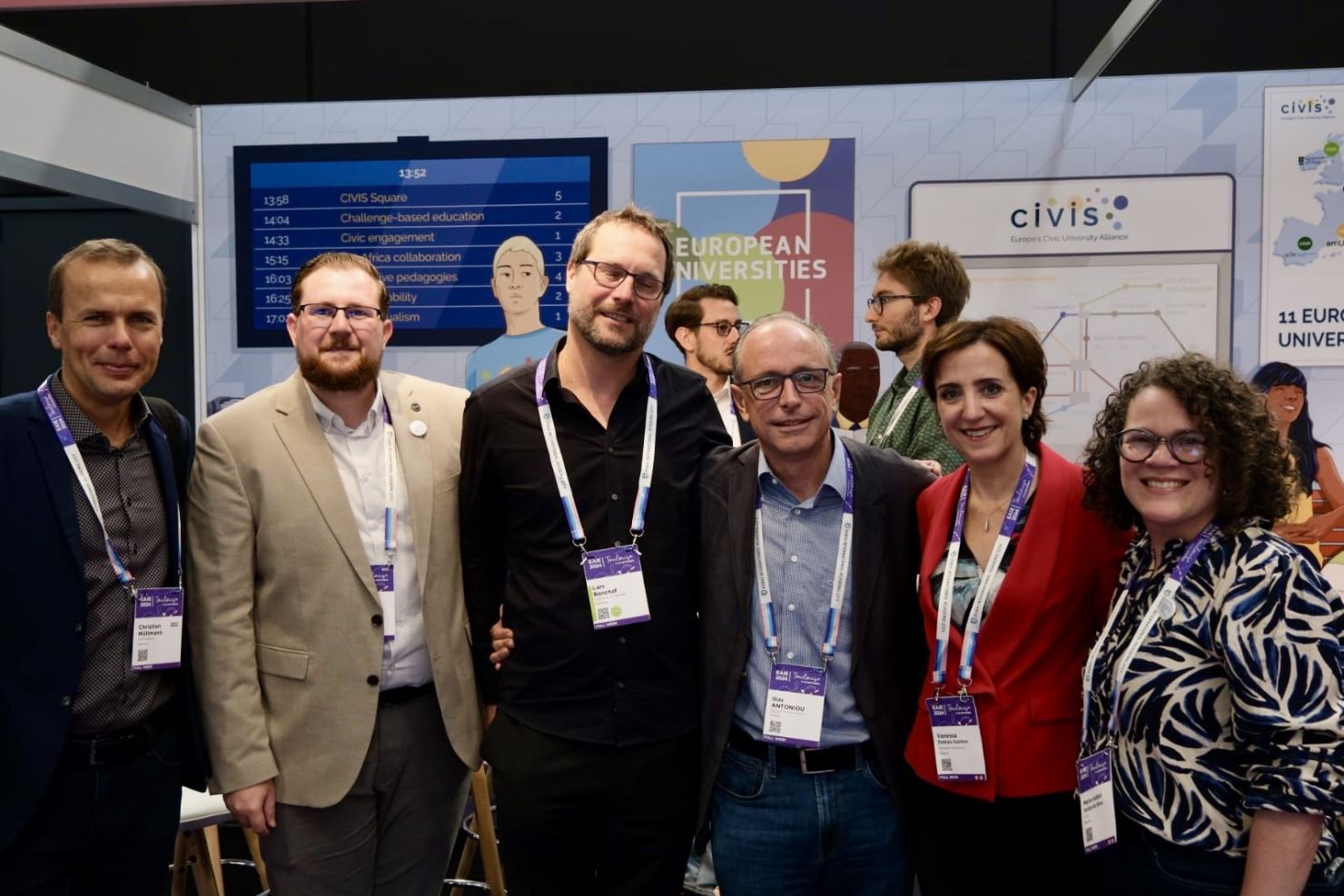
Internationalisation of European Universities Alliances
Hosted by the Université de Toulouse and la Région Occitanie, this conference on September 17 explored why and how European Universities alliances build strategic partnerships with universities and stakeholders beyond the European Union.
Across the sessions, European Universities alliances discussed their internationalisation strategies and approaches and presented case studies about how alliances can forge successful international connections. With over 300 attendees on site and more online, the conference was a great opportunity to exchange about successes and challenges in the internationalisation of European higher education.
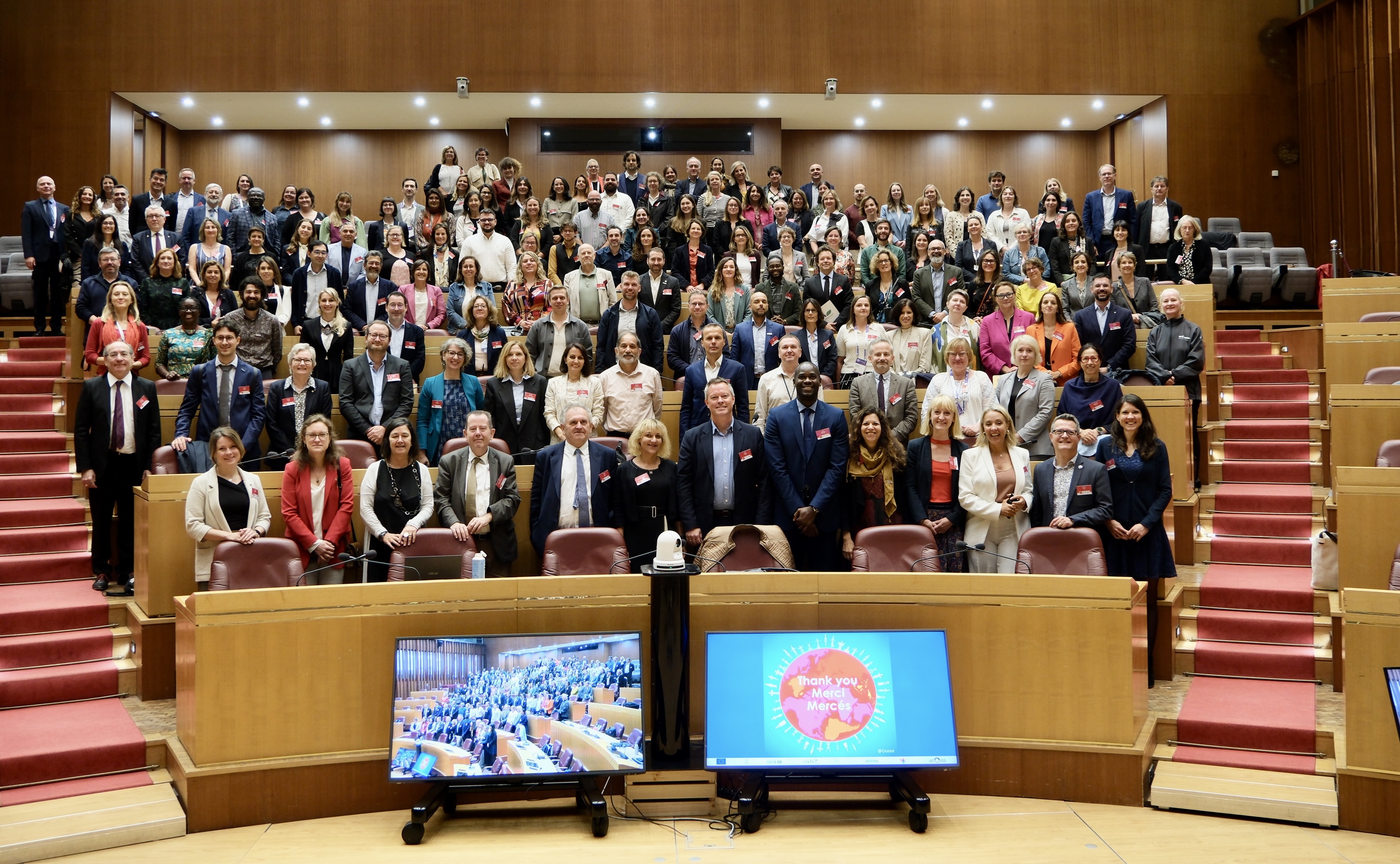
The new frontiers
For CIVIS, it was the perfect occasion to present a groundbreaking vision for internationalisation. Professor Romita Iucu, from the University of Bucharest, proposed 5 points towards new frontiers and a new diplomacy for education:
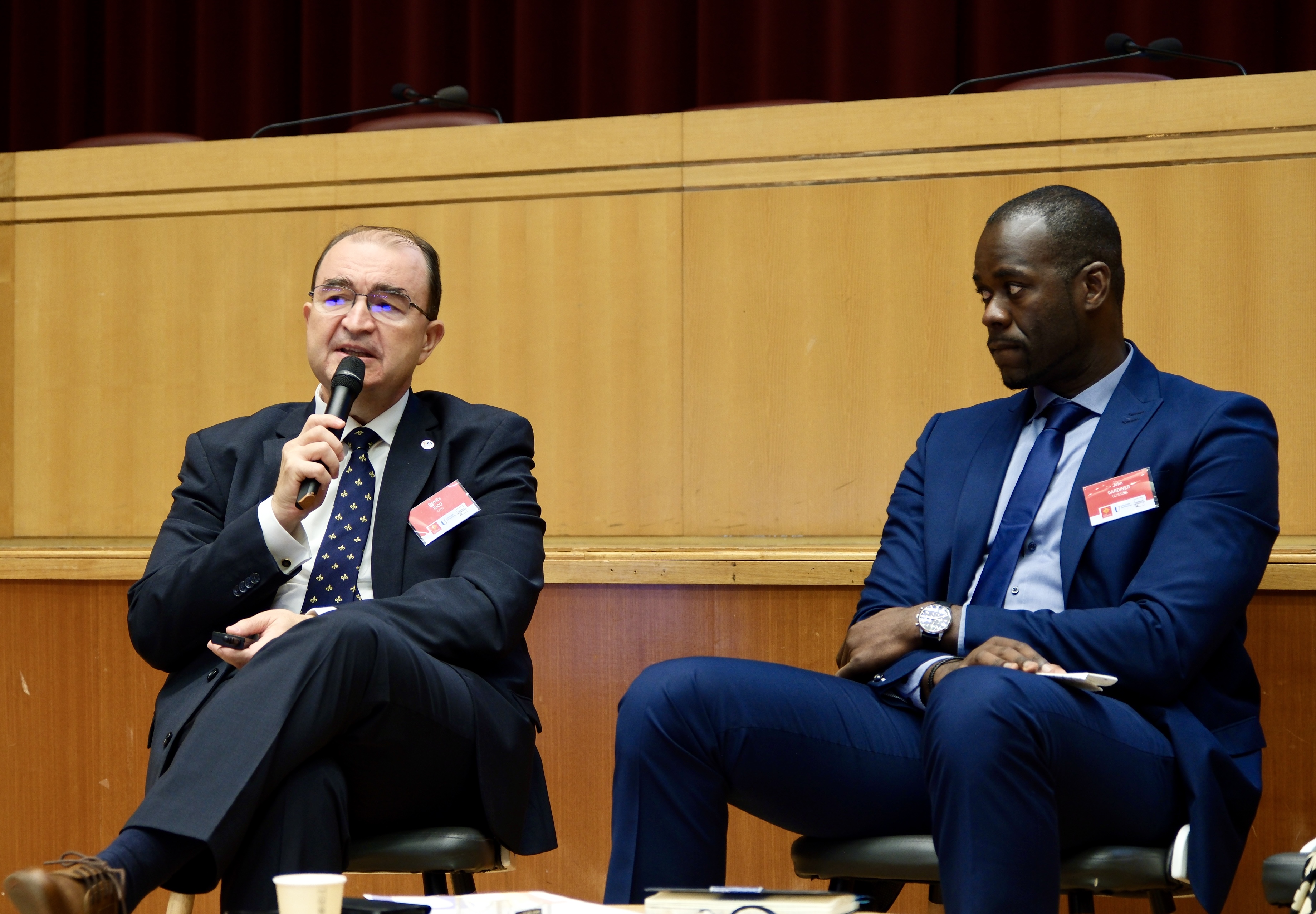
Breaking down trans-institutional barriers
How? By creating world-class, civic universities that engage fully across institutions through innovative models of learning, unlearning, and relearning.
Advancing the Bologna Process for globalisation and internationalisation
To do it, Universities must push its boundaries and embrace non-traditional approaches to internationalisation. All while fostering more dynamic human involvement in the promotion of internationalisation by diversifying roles.
Rethinking “Erasmus frontiers”
A special focus should be put on transcontinental mobility arrangements and by exploring new forms of mobility, including innovative experiments that cater to both traditional and non-traditional students.
The European Degree as a European global brand
By advocating for Europeanisation and accelerating the validation process for the European Degree, not just as a formal recognition process, but as a flexible and innovative framework for new learning models, it can become a recognised label.
“European Universities Diplomacy”
Promoting a new kind of European academic diplomacy by, for instance, professionalising new roles, such as global officers, who act as ambassadors for European academic and research initiatives on the global stage, is key.
Moderated by Dorothy Kelly (Arqus), the panel included: Vanessa Debiais Sainton (DGEAC, European Commission), Carle Bonnafous-Murat (Permanent representative of France Universités in Brussels), Marie Azuelos (CIVICA), Mattia Bellotti (EUTOPIA), John Gardiner (ULYSSEUS) and Romita Iucu (CIVIS).
Charlotte Kedslie, from the University of Glasgow (CIVIS), was the panel’s rapporteur.
Cooperation with Ukraine and Partnerships with Africa at the centre
CIVIS strategic partnerships with six universities in Africa was presented by Mahomed Moolla, from the University of the Witwatersrand. Highlights of Mr. Moolla’s presentation included the participation of African universities in all formats of CIVIS academic activities, the recent seed-funding that will benefit over 20 projects connecting European and African University and the Jean Monnet network PolyCIVIS, that brings together 21 universities in the two regions, including CIVIS’ 11 European members and 6 African associate members to confront the polycrisis through research and education.
EAIE24: on the road to the future of higher education
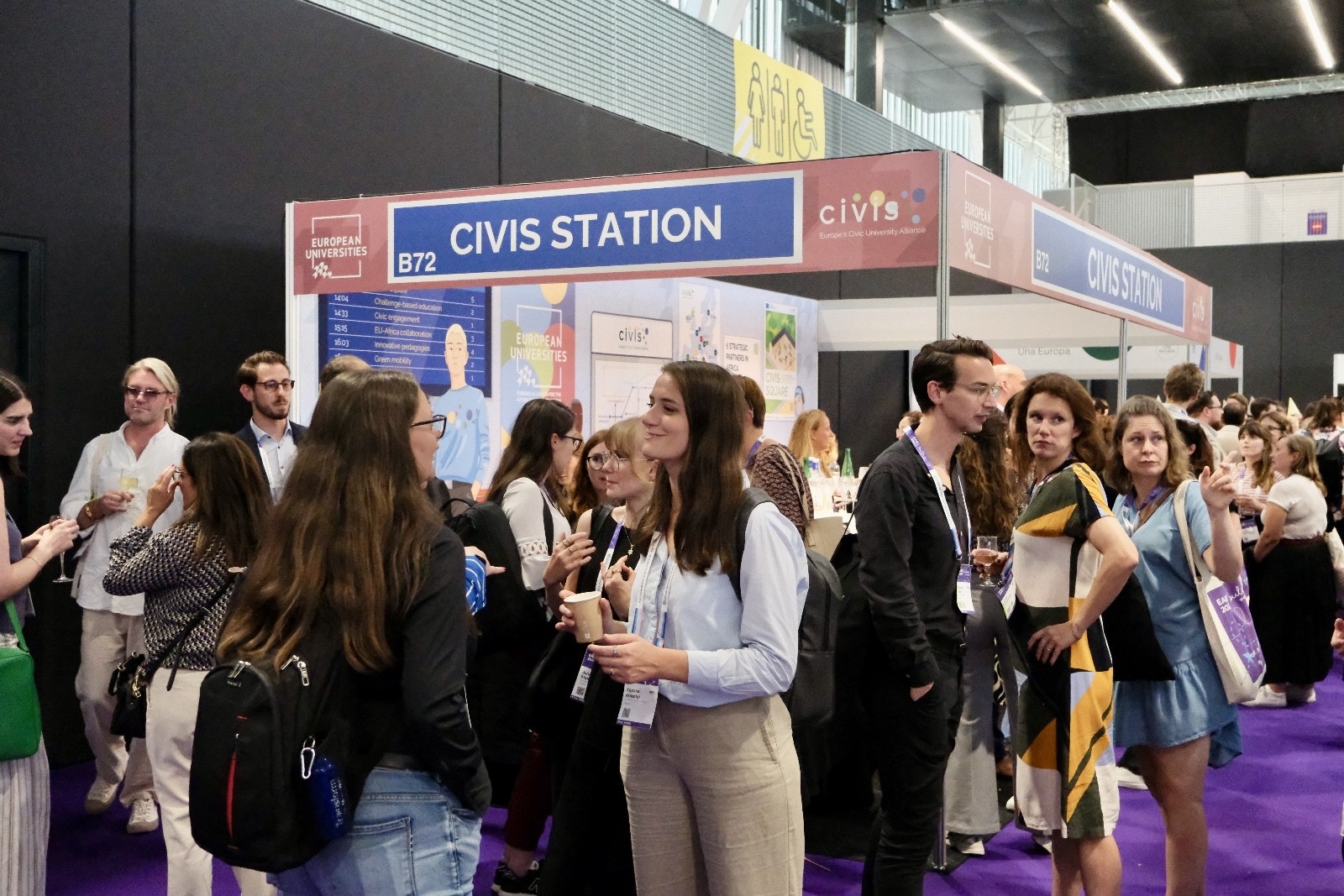
CIVIS welcomed members, visitors and all curious about European Universities alliances and internationalisation of higher education to the CIVIS Station, booth B72, where our theme “On the road to the future of higher education” attracted hundreds of visitors during the two and a half days of the exhibition. Our stand was also the meeting point of members of the CIVIS community, who held a dozen meetings during EAIE24.
During three full-house sessions, we had the pleasure to share the lessons we have learned while developing a transdisciplinary joint/multiple master’s degree; we presented the results of our successful implementation of nearly 200 Blended Intensive Programmes (BIPs) and debated about the challenges of green mobility, quality assurance and inclusiveness of these programmes. The CIVIS Head of Unit for Education, Alexandru Cartis, explained how BIPs are the building blocks that are allowing CIVIS to scale up to other kinds of educational typologies.
We shared also our experiences and critical questions about EU-Africa mobility during a Fishbowl session.
Our session on how to promote African-European student mobility showed that, while universities often share similar challenges, from visa issues to a lack of knowleadge and funding constraints, we can still learn a lot from each other in terms of approaches to address them", said Christian Möllmann, Global Partnerships Officer at CIVIS.
For him, investing in the training and personal networking of staff in International Offices, developping short-term and online mobilty or rethinking the reciprocity principle to achieve a more equitable mobility partnership in often unequal settings were some of the inpiring examples given during the session.
CIVIS also hosted a networking cocktail, with over 50 participants from its different members universities and other guests. It included an informal prize draw organised by the newly created community of practice of Head of International Relations of our 11 European universities and it was a true, fun community moment.
